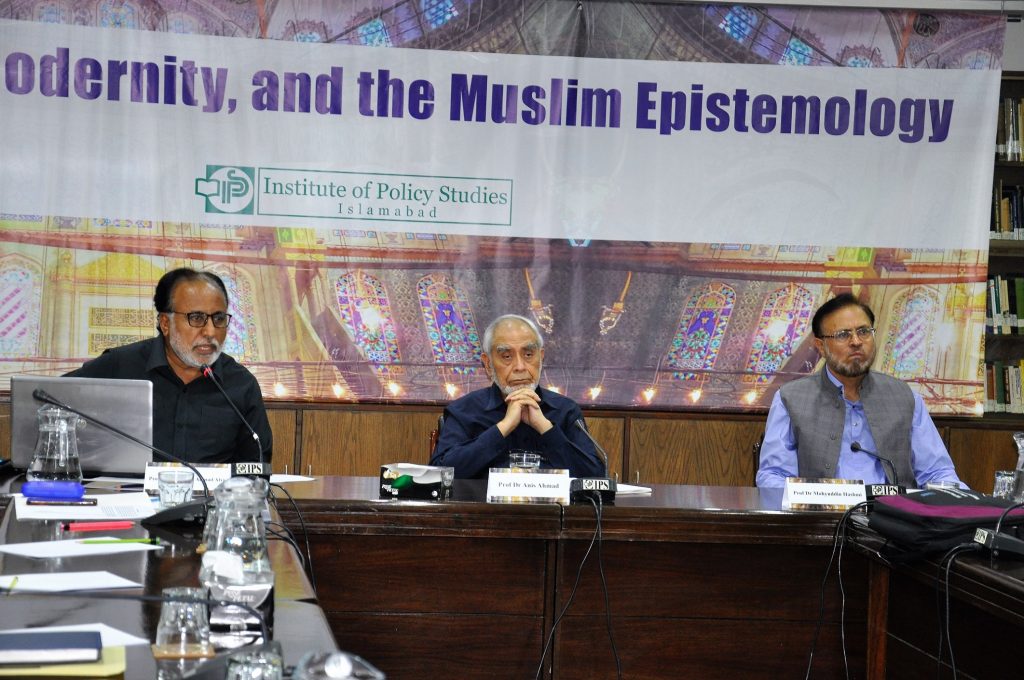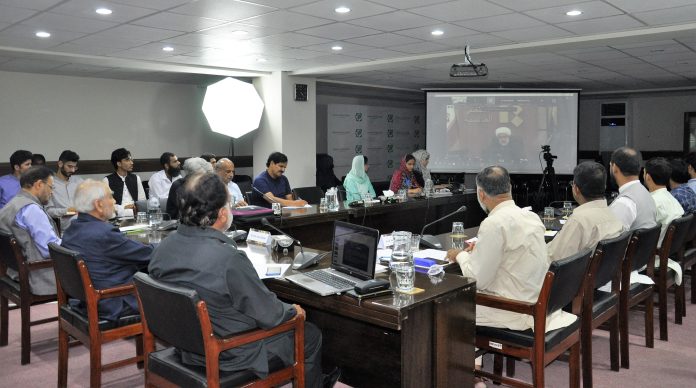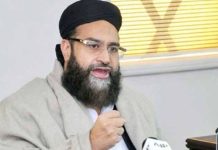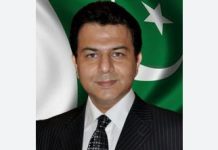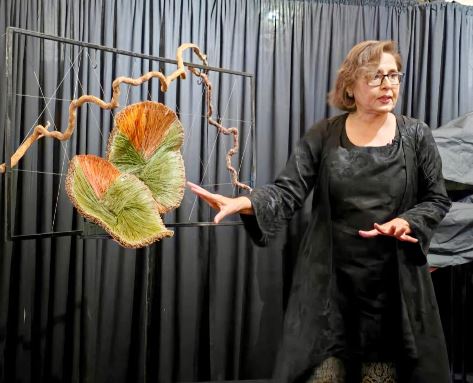Islamabad, August 3: Epistemology reflects the fundamentals and foundations on which a particular worldview approaches knowledge, its sources, and objectives. Civilization, scientific tradition, literary work, and societal structures are developed through this worldview and play a key role in the concept of knowledge.
The Western worldview has developed an epistemology that draws on the peculiar historical experiences of the Western nations and do not go well with divinely inspired Muslim societies. Given the gap between the Islamic worldview and the epistemology imposed through knowledge imperialism, Muslim societies have failed to exhibit their true potential. Muslims need to develop their epistemology through extensive academic engagements and blend the tradition with modernity through ijtihad.
This was observed by academics during a seminar on ‘Tradition, Modernity, and the Muslim Epistemology’ held at the Institute of Policy Studies (IPS), Islamabad. The speakers included Professor Dr Ali Abbasi, President, Al-Mustafa International University, Qom, Iran, as the keynote speaker, the chair Professor Dr Anis Ahmad, vice chancellor, Riphah International University (RIU), Professor Dr Mustafeez Ahmad Alvi, HoD, Islamic Thought and Culture, NUML, and Professor Dr Mohyuddin Hashmi, Dean, Faculty of Arabic and Islamic Learning, Allama Iqbal Open University (AIOU).
Prof Ali Abbasi said that the particular understanding of rationality and reason in the West has undermined the traditional norms and beliefs. Despite the persistent, extensive, and expansive development of the Eurocentric epistemology and its aggressive implementation through colonial and neo-colonial means, the Muslim worldviews, doctrinal beliefs, and epistemological sources are still intact, vibrant, and dynamic. Muslims do not alternate between tradition and modernity to insist putting aside all outcomes of modernity; it rather benefits from modernity and other human experiences to adopt it on the touchstone of its values, sacred ideology, and rational traditions.
He emphasized that a single epistemology cannot claim its prevalence over all societies and civilizations, particularly those that have their rich legacy of knowledge, including Muslims. The negative consequences of the attempt of the Western civilization to dominate the diverse worldviews and indigenous values of other civilizations must be taken care of. Connecting mankind with spirituality and theories based on divine sources of knowledge is one of the primary things to undertake. He underlined that it is the duty of scientific and academic centers to resolve the ideological confusion.
Prof Mohyuddin Hashmi said that only the right understanding of epistemology can solve ideological confusion. In faith-based thought, revelation sets the tradition that itself has the room for embracing modernity through discovery of the knowledge in the universe. In the secular epistemology, the sole source of knowledge is the universe, and despite the significance of tradition, the Western concept of modernity is not ready for a reconciliation. This difference shows that Western ideology has different views of tradition and values, and that it is inapplicable to Muslims and unable to solve their issues. Ijtihad has been a part of Muslim tradition and needs to be made vibrant and functional to reconcile modernity with tradition.
Prof Anis Ahmad said that civilization, culture, and values have been studied in the framework of former colonizers based on their own worldviews and social constructs. Under the faith-based worldview, the real source of knowledge has to be transcendent, comprehensive, and applicable. On this criterion, no concept or doctrine can claim to be a real knowledge source. Islamic epistemology is not dualist and does not draw a line between deen and duniya; rather it derives from a Tawhidi paradigm.
He stressed that Muslim scholars must internalize the transcendent Qur’an and Sunnah in thinking and vision. Similarly, a new genre of knowledge has to emerge from the Qur’an and Sunnah with complete understanding of modern reality. And a new approach which is not hypothetical but comprehensive, transcendent, and applicable is needed for the development and progress of Muslim society.
Earlier, Dr Mustafeez Alvi mentioned that tradition transmits culture and values while modernity transforms ideology and knowledge. This transmission and transformation have created new sources of knowledge and epistemological foundations. While faith-based epistemology is derived from knowledge, learning, logic, and philosophy enlightened by the Qur’an, all other sources of human knowledge – whether embedded in tradition or modernity – must align with the Qur’an, he said. For this, ijtihad within the Islamic framework of thinking is a tool to apply updated knowledge to different aspects of human life.
Prof Dr Fakhr-ul-Islam, director research and academic outreach, IPS, thanked the scholars for their illuminating talks and shared that IPS shall keep on collaborating with other academic institutions to promote dialogue and discourse on the subject.
